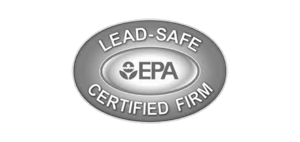In life, it is near impossible to be completely prepared to handle anything and everything that comes your way. From being rear-ended at a stop light to being laid off when your company is purchased by a competitor, there are some things in life that you can not completely plan for. Unfortunately, when these instances occur in life there is usually a financial implication attached, be it from an outright loss of income to repair bills. This also holds true for when you unexpectedly incur water damage to your property. Whether it is from flood waters or sewer line failures, water damage can pop into your life without warning – and dealing with it is not cheap.
Fortunately for many of these moments, there are ways to help you cope, if not overcome. If you are laid off, you have unemployment to draw from. When someone hits your car there is automotive insurance. And when your house unexpectedly incurs water damage, there’s homeowner’s insurance. Right? Well, as it turns out, the answer is…sometimes.
The easy answer to “Am I covered?” when your home has water damage is “Probably,” but there are situations that you need to be aware of – and prepared for – before you call the insurance company about that rising water. The reason you want to “Know before you call” is that you could accidentally shoot yourself in the foot if you notify your insurance company of damage that is not covered by your policy. Sometimes your damage report may still be recorded on your insurance record and look like a claim when you shop for new insurance in the future. And that’s not all – these false claims stay on your insurance record for up to seven years.
If you want to save yourself time and avoid reading the coverages in your policy (we do not recommend this approach) there is a general rule of thumb you can follow to know whether you are covered by your homeowner’s insurance when you have water damage. According to All-State Insurance (https://www.allstate.com/tr/home-insurance/water-damage.aspx), the insurance industry generally covers water damage that is considered “sudden and accidental.” Some examples of what typically meets the definition for that criteria would be if an upstairs pipe burst and it destroyed the ceiling below, or if a ruptured water heater ruined the drywall. In these situations, the insurance carrier will usually help pay for repairs to the structure of your property under a type of coverage known as “Dwelling Coverage.”
Sometimes, though, even ruptured pipes and ruptured water heaters will not be covered. The key in this situation is being able to prove that the damage was caused by “sudden and accidental” causes. If an indemnifier were to determine that a burst pipe was due to the property owner failing to properly keep up the maintenance on the pipe – don’t ignore that leak! – then they can rule that the cause was due to negligence and therefore are not liable to cover the damages.
Another thing to remember when dealing with water damage is to make sure you determine the type of water damage you are dealing with. For example, while it could be argued that a flash flood in your neighborhood was “sudden and accidental” (or even an “act of god”), most homeowners insurance policies will not cover flood damage. This applies regardless of the source of the flood water – be it from the over-saturated ground, or overflowing and/or surging bodies of water like nearby ponds, rivers, lakes, and oceans. You can, however, insulate yourself from these situations by purchasing additional coverage from the National Flood Insurance Program (https://www.floodsmart.gov/).
What about when flood damage is caused by a larger infrastructural failure? For example, what about when a neighborhood sewer line fails and water backs up into your home through an outside sewer or drain? Unfortunately, that is more bad news for the property owner, as you are not likely to be covered here under the standard homeowner’s policy. In fact, no flood damage – regardless of the source of the water – is typically covered by the standard homeowner’s insurance policy. Similar to purchasing flood insurance separately, however, you can purchase additional coverage for such an incident.
As mentioned before, the general rule of thumb is that if the damage was caused by “sudden and accidental” causes then you likely can be covered. But as also mentioned above, we do not recommend following the general rule of thumb. It is always best to go over your policy with a fine-toothed comb so that you are fully aware of what kind of coverage you have. And if you do not have enough time (or desire) to read your policy then you can also call and speak to your insurance agent and they will walk you through your coverage, as well. When you speak with them, make sure to have them explain your deductible responsibilities and what coverage limits may apply to your policy. They can help you determine whether you need to adjust those limits and deductibles and whether you need to purchase the additional coverages.
As you can see, understanding your coverage – and the responsibilities that stem from your coverage – can be complicated and sometimes confusing (if not time-consuming). Learning about it when your house is flooded and you do not know what to do is the worst approach you could take. The good news, though, is that despite the complicated mess that insurance can sometimes prove to be, Distinctive Restoration is already aware of the difficulties that may arise in managing your water-damaged home. And when the waters begin to rise, they are well versed in managing these situations with your insurance company. They will help you file your claim, helping you insure you get a fair settlement. They will even send their invoice straight to the insurance company by utilizing their Xactimate proposals system, which is an industry-approved software suite that every insurance carrier in the nation uses due to its ability to help seamlessly resolve claims.
In the end, your homeowner’s insurance may not cover everything that life may throw your way. But with Distinctive Restoration, you can rest assured that the best policy around – their experience and expertise – is there to help you through all your water damage-related needs.



















